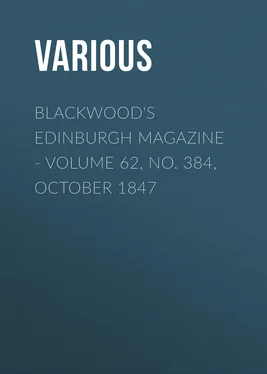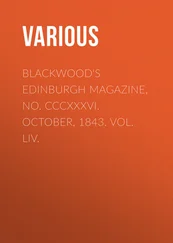Thus writes Suetonius—"prægrandibus oculis, qui, quod mirum esset, noctu etiam et in tenebris, viderent, sed ad breve, et quum primum a somno patuissent; deinde rursum hebescebant."— Tib. cap. lxviii.
Those who are familiar with the classic historians, will see in this description no exaggeration whatever. Instruments for the destruction of life yet more awful and mysterious, were employed by many of the predecessors, and many of the successors of Tiberius, as well as by Tiberius himself: and modern science has shown that these devices, instead of being, as was originally conjectured, the result of black-magic, were, in reality, the effect of hydraulic, pneumatic, and mechanical contrivances. Even the most marvellous feats of the Egyptian sorcerers have been latterly explained by the revelations of natural philosophy, and a multitude of these explanations may be found by the reader in the learned work "Des Sciences Occultes," &c. written by M. Eusebe Salverte, and published in Paris as recently as 1843. In that remarkable volume, M. Salverte proves that natural phenomena are more startling than necromantic tricks, and that, in the words of Roger Bacon, " non igitur oportet nos magicis illusionibus uti, cum potestas philosophica doceat operari quod sufficit. " That Tiberius was capable of atrocities yet more terrific, and that murders of the most inhuman kind were the consequence of almost every one of his diabolical whims, those acquainted with the picturesque narrative of Suetonius already know. They will remember not only how he caused his nephew Germanicus to be poisoned by the governor of Syria, but how he ordered a fisherman to be torn in pieces by the claws of a crab, simply because he met him, in one of his suspicious moods, when strolling in a sequestered garden of Capreæ.— Sue. Tib. c. lx.
Suetonius assures us (cap. lxviii.), that the muscular strength of Tiberius Claudius Nero was, in the prime of his manhood, almost as supernatural as his crimes; that he could with his outstretched finger bore a hole through a sound apple ( integrum malum digito terebraret ), and wound the head of a child or even a youth with a fillip, ( caput pueri, vel etiam adolescentis, talitro vulneraret. ) His excesses must, however, have enervated his frame long before his death by suffocation.
His garb, writes Josephus, "was so resplendent as to spread a horror over those that looked intently upon Him."— Lib. xix. c. 8.
"An owl," says Josephus (xix. 8); "an angel of the Lord," αγγελος Κυριου, say the scriptures, (Acts. xii. 23,)—in either case a spectral illusion.
It is impossible for anyone devoted to the study of "Paradise Lost," of "Comus," even of "Sampson Agonistes," and especially of "Il Pensoroso" and "L'Allegro," to doubt that their writer was carried away at times by the œstrum , or divine afflatus , although Dr Johnson discredits "these bursts of light, and involutions of darkness, these transient and involuntary excursions and retrocessions of invention."—See Lives of the Poets , vol. i. p. 188.












